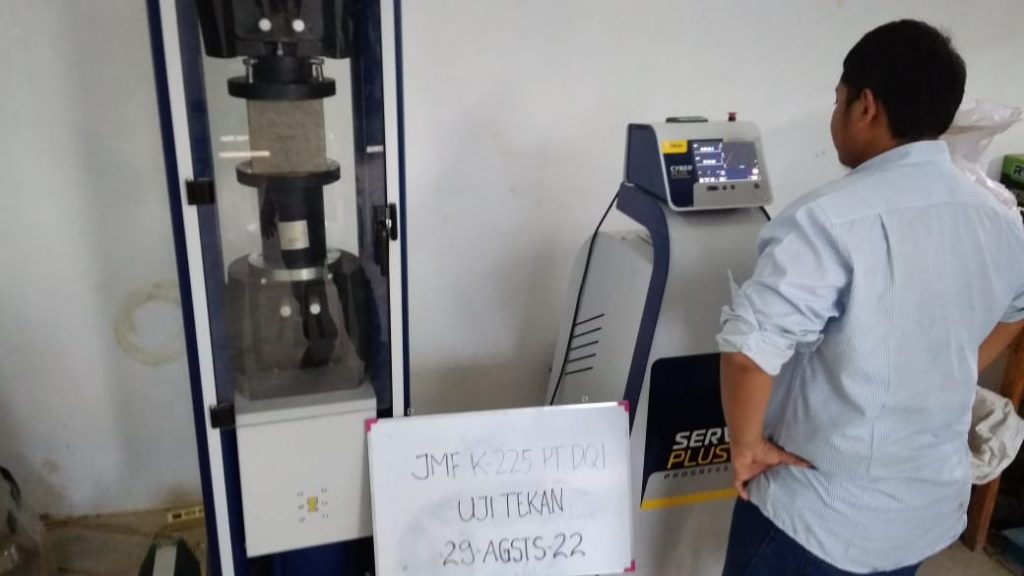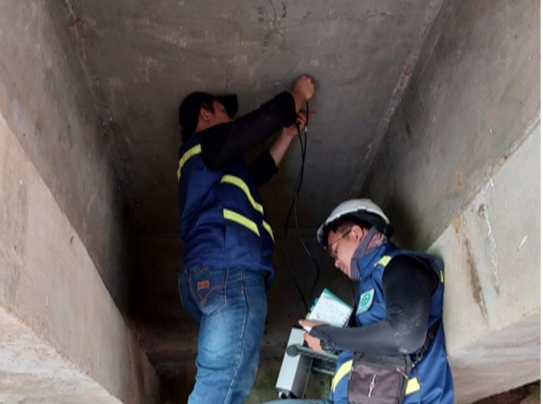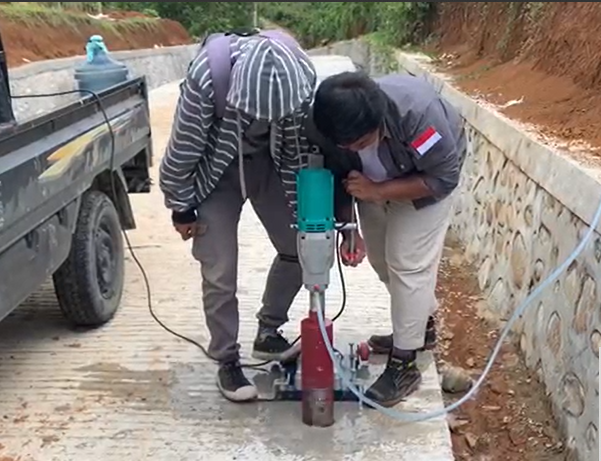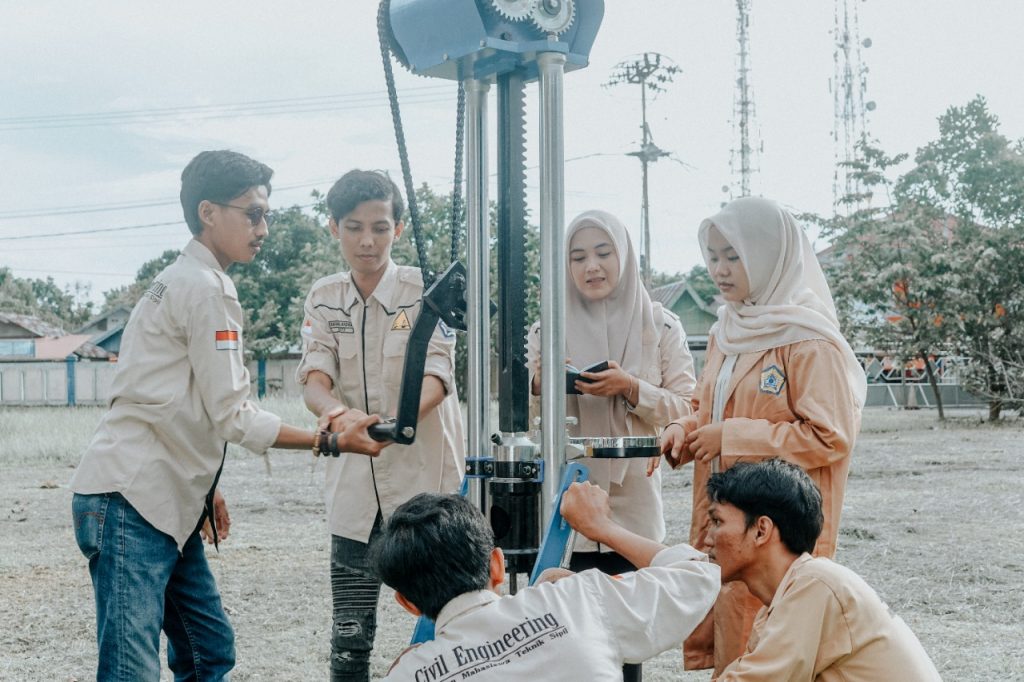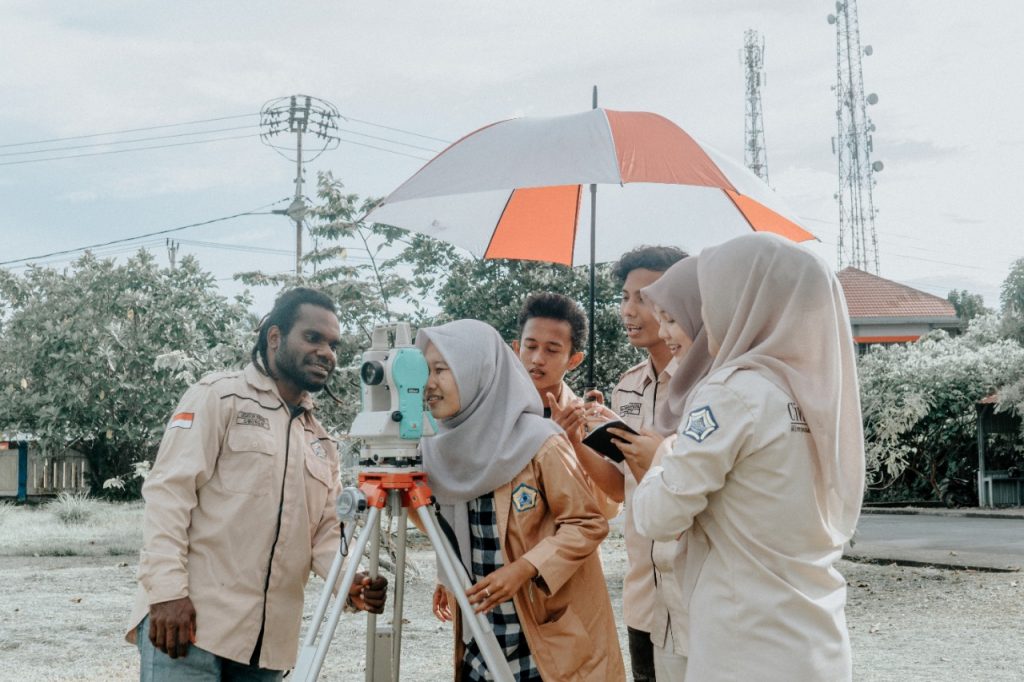The civil engineering Study Programme currently has five laboratories:
- the construction and concrete technology laboratory
- The geotechnical and geodesy laboratory,
- The water resources laboratory
- The transportation engineering laboratory
- The computer laboratory.
In its development, it is planned to add two more laboratories which are, first, the construction and concrete technology laboratory expansion into a structural engineering laboratory and concrete technology laboratory, which is planned to be established in 2023. Second, the geotechnical and geodesy laboratory expansion into a geotechnical laboratory and a geodesy laboratory is planned to be established in 2024.
Civil engineering laboratories have the latest equipment to perform services for various activities of students, lecturers and the general public, supported by a complete and competent organisational structure consisting of the head of the laboratory, quality manager, technical manager and laboratory technician. Fulfilment of equipment’s number, quality and specifications and a complete personnel organisation is intended to meet operational laboratory standards. By 2023, civil engineering laboratories have targeted to obtain accreditation and certification of ISO/IEC 17025.
In general, the Bachelor in Civil Engineering Study Programme laboratory carries out the following functions:
- The educational laboratory that supports student practicum activities in supporting the learning process
- The research laboratory that functions as a research and publication facility for lecturers and students
- the service laboratory that provides laboratory services or collaboration with parties outside the university, both to the construction community and the general public, supports the development and construction of structures and infrastructure.
The development of the Civil Engineering laboratory is planned to be divided into three stages:
Stage 1, with targets:
replacement of damaged tools and procurement of minimum equipment needed in student practicum services and equipment needed for simple research
appointment of laboratory technicians who can provide simple, practical and research services.
Stage 2, with targets:
procurement of laboratory equipment capable of providing construction testing services to the public,
have a sufficient number of laboratory technicians capable of providing services to the community,
have sufficient space to accommodate laboratory equipment.
Stage 3, with targets:
procurement of complete and adequate laboratory equipment for community services and comprehensive research, including loading frames, hydraulic jacks, large – scale shaking table 3 DOF with earthquake simulation capabilities from time history data, data loggers, sensors (load cell, accelerometer, velocity meter, LVDT), actuator, forensic test equipment (crack width detector, rebar detector. Ultrasonic Pulse Velocity), analysis software (SAP2000, ETABS, NASTRAN, Ansys, and ZIN)
- have permanent laboratory technicians with the number and ability according to standards and have applicable legality (SK),
- have laboratory administration staff,
- fulfilment of the standard organizational structure of testing laboratories,
- fulfilment of space and building requirements according to standards for certification and accreditation, and
- the laboratory received ISO/IEC 17025:2017 certification and accreditation from KAN (National Accreditation Committee)
At this time (May 2022), stages 1 and 2 have been fulfilled with the procurement of laboratory equipment in 2021., the appointment of laboratory technicians from alumni and final year students with honorariums managed independently by the Bachelor in Civil Engineering Study Programme and Civil Engineering Laboratory without SK / legality from universities, and the rehabilitating existing lab buildings from the 2021 APBN funds.
Phase 3 of the road map for the development of the Civil Engineering Laboratory of the Faculty of Engineering of the University of Bengkulu must endeavour with the support of all stakeholders with a target of completion in 2022. As a result, the plan for achieving ISO/IEC 17025:2017 certification and KAN accreditation can be achieved according to the target, and the laboratory can serve more research:
- Responsible for the implementation of the Civil Engineering Testing Laboratory personnel training at Bengkulu University
- Responsible for preparing and controlling the test quality assurance program
- Assist the Head of Laboratory and Quality Manager in preparing materials and Management Review Reports
- Coordinating proficiency testing and inter/intra laboratory cross – checking, and is responsible for coordinating validation & verification of test methods
- Free from internal and external commercial and financial pressures, which can negatively affect the quality of work
- Avoid involvement in any activity that would reduce confidence in competence, impartiality, judgment and operational integrity.
- Signing the Test Result Report
- With the Quality Manager, select and determine the laboratory to carry out a contract for testing standard laboratory equipment.
- Decide on the test results following the technical requirements that have been set.
